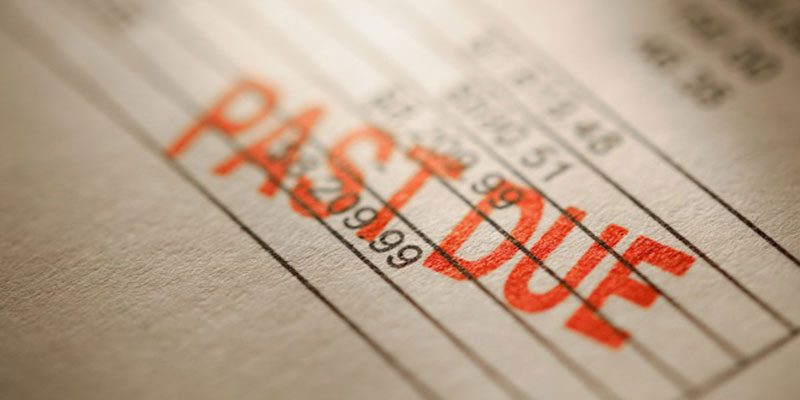What to do if your client is refusing to pay for work completed
Is there any worse feeling as a small business owner than being confronted with a situation where your customer won’t pay for work you’ve done or goods you’ve already supplied? As well as experiencing feelings of frustration and powerlessness, there is often added stress with the impact this has on your business cash flow.
However, anyone who has been in business for some time will know that on occasion, for whatever reason, there will be clients who simply feel they don’t need to pay.
In resolving situations where clients are unwilling to pay their bill, it’s important to find out what the problem is. The way you proceed will depend what you perceive the true motivation for the non-payment to be.
Reasons for non-payment
- Client dissatisfaction
Not all clients will be upfront with their level of satisfaction with your work, and this can impact their willingness to pay their debt to you. Start by exploring this possibility first and if there is a problem, you have the chance to rectify any problems in a mutually satisfactory way.
- Short term financial hardship
If you establish hardship of an otherwise reliable and valuable client, you might offer them alternatives to immediate repayment, such as an agreed extension of time or a payment installment plan.
- Unethical behaviour
However, if you feel there is dishonesty or unethical behaviour at play, you will more likely take a harder line, potentially taking legal action.
How to recover your debt
If you’ve attempted negotiation, sent invoices and reminders, and feel you’re not making any progress, consider hiring a professional debt collection agency to recover the debt on your behalf.
Instead of prematurely writing the debt off, debt collection agencies can be very effective in tracking down debtors and recovering your money. And with many offering a ‘no collection, no commission’ service, there is little risk to your business.
Avoid problems in the future
To avoid similar situations in the future, it’s good to be aware of strategies for mitigating your risk.
- Have systems and procedures in place which reduce the chance of non-payment
It’s vital to have legally enforceable payment and credit terms that are communicated clearly, and to have them agreed and signed off in advance of any work done. Your payment terms will highlight your expectations right from the beginning and will avoid any confusion (or claims of confusion) in the future. Having professional, well-drafted terms will also indicate to your customer that you are more likely to enforce them. Payment terms should outline all details of interest charges on overdue amounts, and the costs and expenses of recovery if it becomes necessary. This legitimately includes fees charged by debt collection agencies as well as any legal fees.
- Establish their creditworthiness with a credit check
Checking a potential client’s credit history is easier than many people think. Credit reporting agencies can provide you with a full credit history report – a fast and cost effective solution to minimising your risk.
- Only work for upfront fees or a retainer
You may need to go ahead and disrupt the traditional way of operating in your industry, and require upfront payment before any services are performed or goods supplied. This will eliminate the need to worry about unpaid invoices, cash flow problems, debt collection, or legal battles over broken contractual arrangements.
It’s an awkward and uncomfortable feeling having to chase clients for payment, especially when you’d rather be working on growing your business. However it’s important not to give up as the longer you leave a debt outstanding the harder it is for the debt to be recovered.
If you feel you have exhausted all avenues, it may be time to engage a reputable debt collection agency who can work on your behalf to ensure you are legitimately paid for the product or services delivered.

